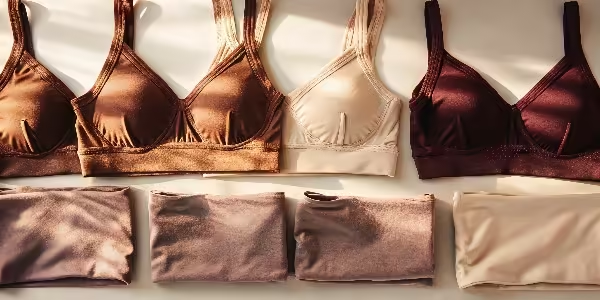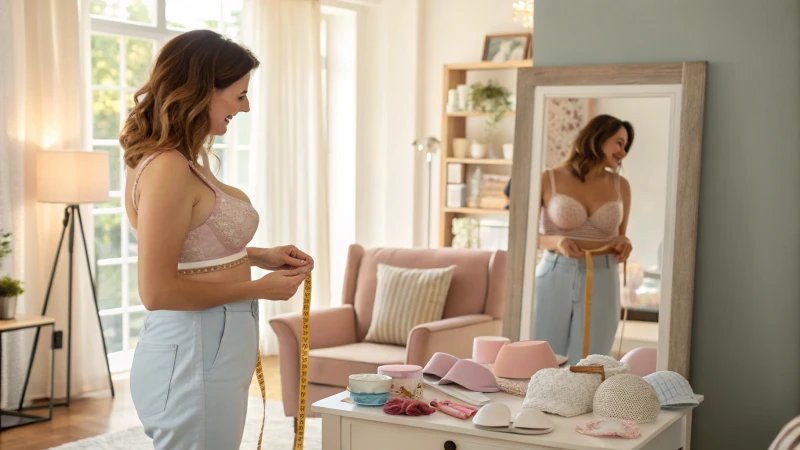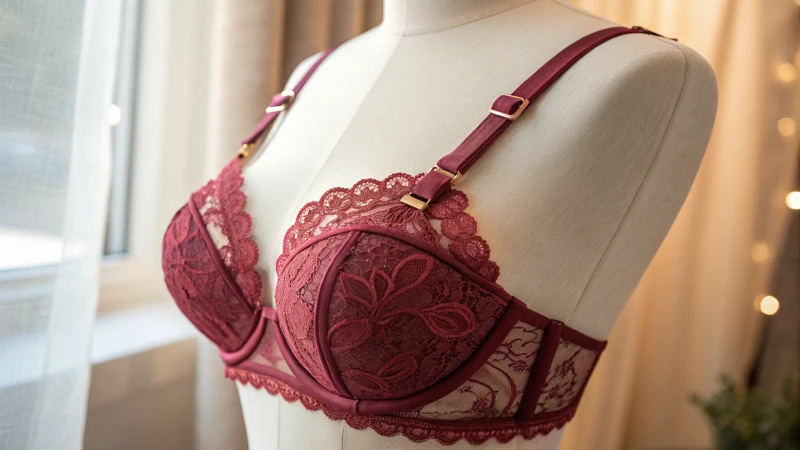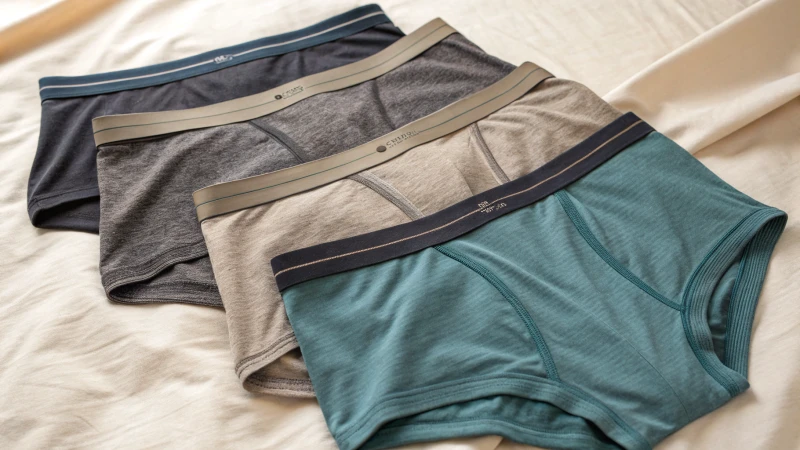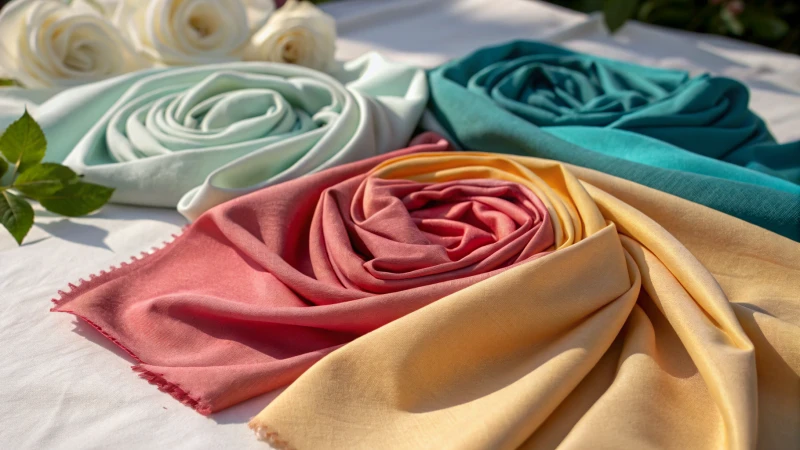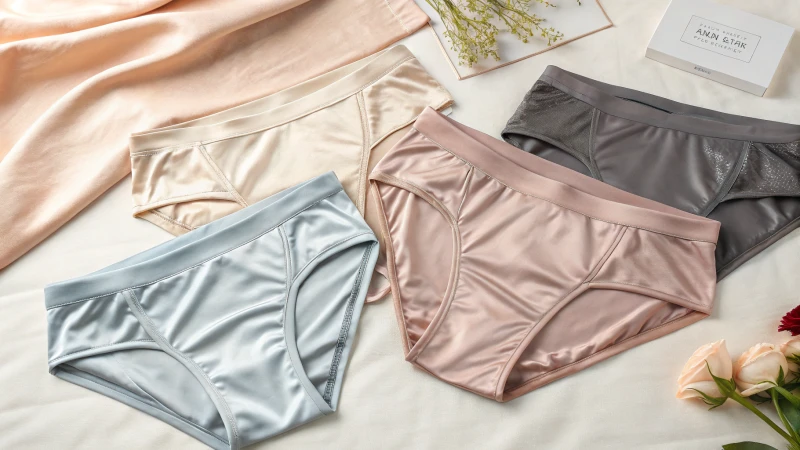
Have you ever wondered why some men choose to wear women's panties during vacation? It's really an interesting topic!
Men probably wear women's panties on vacation for several reasons. Comfort is one important reason. Another reason is fit. Personal expression matters too. This choice often shows themes of gender identity. It also reflects societal norms. We gain insights into individual preferences. Social behavior is part of it too.
I think about this intriguing phenomenon and recall my own vacation experience. Fashion boundaries offer freedom. For many, wearing women’s panties feels playful. It allows self-expression. Some people find them really comfortable. They fit better, especially in warm places. Others enjoy trying new identities in safe spaces. Each choice shows deeper themes. Personal expression and societal norms are both important. This topic is truly fascinating to explore.
Men wear women's panties for comfort during vacations.True
Comfort is a primary reason men choose women's panties, as they may offer better fit and softness compared to traditional men's underwear.
Wearing women's panties reflects a man's gender identity.True
The choice to wear women's panties can be an expression of personal identity and challenges societal norms regarding gender and clothing.
What Psychological Factors Influence Clothing Choices?
Do you ever wonder why you like certain outfits or styles? Our clothing choices often mirror our thoughts, emotions and social bonds. Let's explore these interesting psychological effects that influence what we choose to wear.
**Psychological factors like self-identity, social influence, emotional expression, body image and cultural background are very important in how we choose our clothes. These elements come together to create a mix of personal and societal dynamics. They shape our fashion choices and self-expression every day.
The Role of Self-Identity
Self-identity greatly influences our clothing choices. I often choose outfits that match with who I think I am. For instance, I began to prefer eco-friendly brands when I adopted a sustainable lifestyle. They align with my values and personality.
This link between clothing and self-identity appears in many situations. Dressing for a job interview to show professionalism or wearing comfy clothes on a lazy Sunday shows this connection. What we wear can really influence our mental state. Wearing a sharp suit for an important presentation boosted my confidence. I felt I could conquer the world. This is known as enclothed cognition. Our clothes affect our psychological state.
Social Influence and Group Dynamics
Social influence very powerfully shapes our clothing choices. I often feel a push to wear what my friends wear or what's trending on social media. Our outfits send silent messages about belonging to a group. The urge to fit in is strong. We often adopt styles from our circles.
Clothing acts as silent communication. It shows if we belong or feel left out. Trends spread fast through social networks. We see many adopt new styles as their peers or favorite celebrities start trends.
Emotional Expression Through Fashion
Fashion serves as a canvas for emotional expression. I often pick vibrant colors when feeling joyful. On somber days, I opt for darker colors. Our wardrobe choices can act as a reflection of our emotions. They let us convey feelings without speaking.
Brands that understand this emotional link often find success. They know how colors and designs connect with people’s feelings.
The Impact of Body Image
Body image is another significant factor. How we view ourselves changes our clothing choices. When I feel good, I try bold trends. But when insecurities creep in, I choose outfits that hide my figure.
The body positivity movement is refreshing. It promotes inclusivity in fashion, embracing diversity in sizes and representations. Brands now cater to various bodies. It feels empowering when styles honor and celebrate different shapes.
Cultural Influences on Fashion Choices
Cultural background strongly influences our wardrobe. Growing up in a multicultural setting inspired me with vibrant traditional attire. Each piece tells a story and represents a rich heritage. It shapes individual fashion expression.
Fashion designers often find inspiration in various cultures. The result is beautiful fusion styles. They celebrate diversity.
Understanding these psychological factors offers valuable insights for brands. It also provides a deeper appreciation for how our clothing choices relate to who we are.**
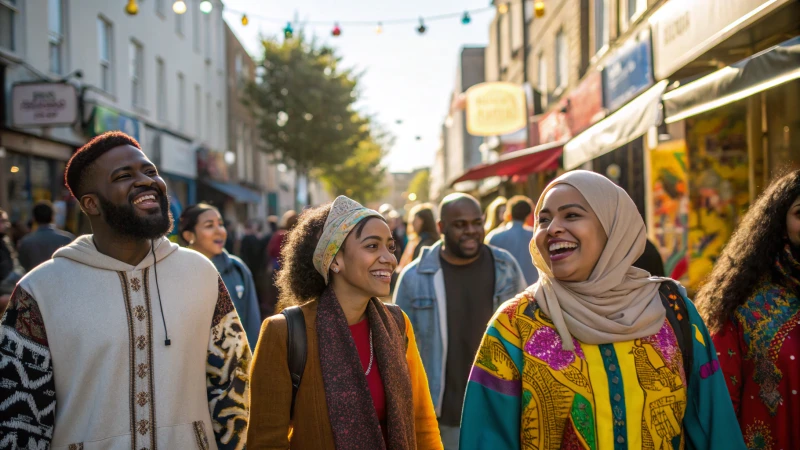
Understanding Clothing Choices
Understanding why people pick certain clothes involves more than just fabric and design. It connects to identity, feelings and the complex dynamics of social lives. Let me share insights that really struck me during my exploration of this topic.
The Role of Self-Identity
One significant psychological factor influencing clothing choices is self-identity. People often wear clothes that reflect their personality, values, and beliefs.
For instance, an individual identifying as environmentally conscious may prefer sustainable fashion brands. This connection between clothing and self-identity can be seen in various contexts, such as professional attire for job interviews or casual wear for leisure.
Additionally, the concept of enclothed cognition suggests that the clothing one wears can influence their psychological state. For example, wearing formal attire may enhance confidence and productivity, while comfortable clothing can promote relaxation. Learn more about enclothed cognition1.
Social Influence and Group Dynamics
Social influence plays a pivotal role in shaping clothing choices. Many individuals select their outfits based on peer pressure or the desire to fit into a social group.
Clothing can serve as a non-verbal communication tool, signaling belongingness or exclusion. Trends often emerge from social circles, with individuals adopting styles that are popular among their peers or celebrities.
Table 1: Examples of Social Influences on Clothing Choices
| Social Factor | Influence on Clothing Choices |
|---|---|
| Peer Pressure | Desire to conform to group norms |
| Celebrity Influence | Imitating styles worn by idols |
| Cultural Trends | Adoption of styles prevalent in culture |
Emotional Expression Through Fashion
Clothing choices can also serve as a means of emotional expression. Individuals may choose specific colors, patterns, or styles to convey their mood or feelings.
For instance, wearing bright colors might indicate a cheerful disposition, while dark colors might reflect sadness or introspection. Understanding this connection can help brands tailor their offerings to meet consumer emotional needs. Explore emotional design in fashion2.
The Impact of Body Image
Body image significantly influences clothing preferences and choices. Individuals with a positive body image are more likely to experiment with diverse styles and trends. Conversely, those with negative body image may opt for clothing that conceals rather than expresses.
The rise of body positivity movements has encouraged more inclusive sizing and diverse representation in fashion. As a result, consumers are more likely to embrace styles that make them feel confident and accepted.
Table 2: Body Image Impact on Clothing Choices
| Body Image | Clothing Choice |
|---|---|
| Positive | Experimentation with trends |
| Negative | Preference for concealing attire |
| Neutral | Comfortable and functional wear |
Cultural Influences on Fashion Choices
Lastly, cultural background profoundly affects clothing choices. Traditional attire often represents cultural heritage and identity, influencing how individuals present themselves to the world.
Fashion designers frequently draw inspiration from various cultures, leading to unique fusion styles that celebrate diversity. Read about cultural fashion influences3.
Understanding these psychological factors provides valuable insights for brands looking to connect with consumers on a deeper level.
Self-identity greatly influences clothing choices.True
People choose clothing that reflects their personality and values, highlighting the strong connection between self-identity and fashion preferences.
Negative body image leads to more experimental clothing choices.False
Individuals with a negative body image often prefer concealing attire rather than experimenting with styles, impacting their fashion decisions.
How Does Vacation Context Affect Fashion Decisions?
Do you ever see how clothes change when on vacation? Come with me. Let's look at how travel spots, cultural encounters and personal style mix into what we wear while traveling.
Vacation settings very much shape fashion choices. They affect clothing based on location features, cultural expectations and personal style. Beach vibes inspire relaxed looks. Urban places often call for chic outfits. These factors really improve the travel experience. Clothing really impacts travel joy.
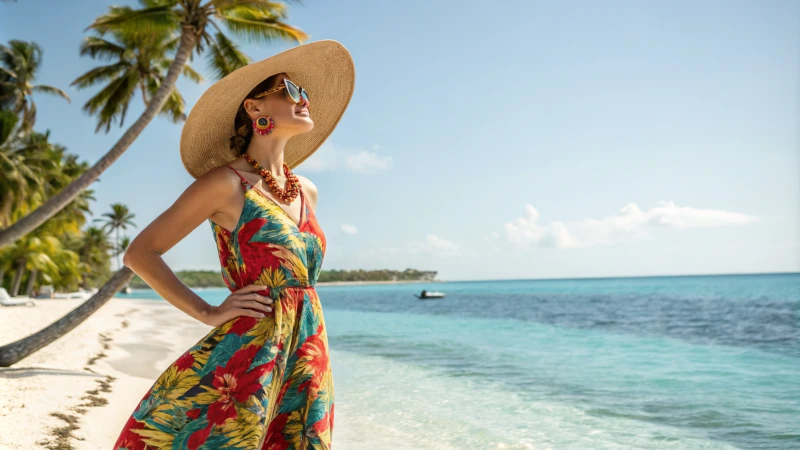
The Influence of Destination on Fashion Choices
Vacations greatly impact what we wear because of the destination, local cultures, and personal style.
How Destinations Shape What We Wear
I remember my last beach vacation - warm sand, sun, and freedom. I chose light sundresses and colorful swimwear, embracing the tropical feel. Destinations often dictate our clothing!
Cities inspire a different vibe. In New York City, I felt a need for sophistication. I packed blazers and stylish dresses, blending in with busy streets and trendy locals. Every place has its own fashion, and fitting in feels really good.
Weather also influences our wardrobe. In cold mountains, layers matter. I packed sweaters and scarves for a ski trip, just as vital as ski gear. Heat calls for light fabrics - like breathable linen or airy cotton.
| Destination | Common Styles | Influential Factors |
|---|---|---|
| Tropical Beach | Swimwear, shorts, sundresses | Climate, leisure culture |
| Urban City | Chic outfits, smart casual | Local fashion trends, cultural norms |
| Mountain Retreat | Layered clothing, hiking gear | Weather conditions, activity type |
Cultural Norms and Travel Fashion
Cultural traditions shape travel fashion uniquely. In Japan, modest local styles caught my attention. I chose subtle outfits to respect the surroundings.
Spontaneous shopping is a joy! I've stumbled upon local boutiques finding pieces that shouted "Take me home!" Each item becomes more than a souvenir - it's a cultural keepsake.
Personal Style in Travel Fashion Choices
Vacations allow unique fashion expression! I often take fashion risks - bold colors and playful prints as I break free from everyday norms. It's liberating!
Traveling lets us explore identity. At a city festival, I picked clothes that felt daring. Fashion risks often lead to unforgettable moments and sometimes change how I dress later.
Trends in Vacation Shopping
Vacation shopping is exciting! The place often influences our purchases. In Italy, I bought fine leather goods with local charm. These choices add flair to my wardrobe and remind me of my travels.
Sometimes I buy vacation-specific clothes rarely worn at home. For instance, a trendy ski jacket from a winter trip becomes cherished memories of adventures.
In conclusion, vacations greatly shape what we wear. Destination vibes, culture and personal expression mix to enrich our travel experiences. When packing, think about how your clothes reflect not only where you're going but who you are becoming.
Beach vacations encourage lighter, colorful fabrics.True
Travelers choose breathable fabrics like cotton and linen for beach getaways, reflecting the warm climate and casual atmosphere.
Cultural norms do not influence vacation wardrobe choices.False
Travelers often adapt their clothing to respect local customs, showcasing the impact of cultural expectations on fashion decisions.
What Are the Societal Norms Surrounding Gender Expression?
Gender expression resembles a canvas. People paint their identities on it through clothing choices and actions. What rules in society affect these expressions? Let’s explore this colorful world!
Societal norms about gender expression dictate acceptable behaviors and appearances for each gender identity. These norms differ across cultures and change over time. They shape how people view themselves. They also affect how people interact with others. Society is moving towards greater acceptance of diverse expressions. Society is really evolving.
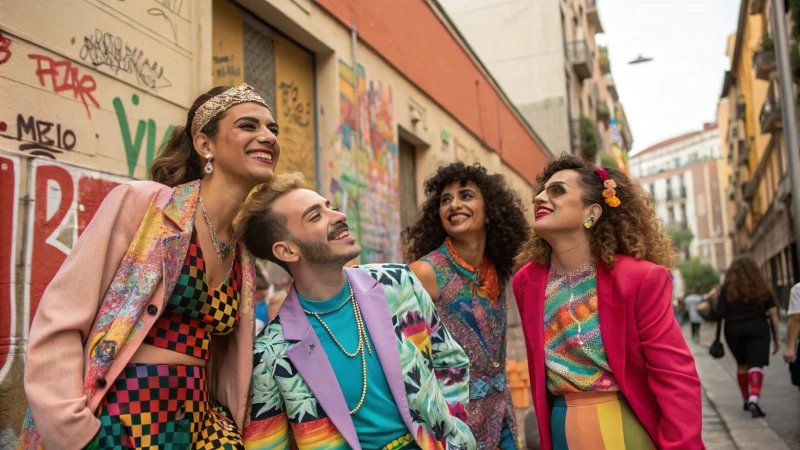
Understanding Societal Norms
I often think about how societal norms dictate our choices, especially in gender expression. These norms shape how we show our gender identity with clothing and behavior. As I grew up, I felt the weight of expectations. Boys wore pants and girls wore dresses. However, these rules face challenges more often now.
Consider this for a moment. Gender fluidity and non-binary identities bring a colorful array of self-expression. We are starting to embrace them. I have met people who, despite feeling pressure to conform, bravely express their true identities. This journey of self-discovery is both deep and beautiful.
The impact of these norms can be overwhelming. Pressure to fit into a mold leads to feelings of inadequacy and suppression. I have also seen the joy that comes from embracing diverse expressions. This helps build a more inclusive society, where everyone feels free to be themselves.
Cultural Variations in Gender Expression
Different cultures offer unique perspectives on gender expression that often reflect their values and beliefs. For example:
| Culture | Gender Expression Norms | Examples |
|---|---|---|
| Western | Binary roles; men = masculine, women = feminine | Suits for men; dresses for women |
| Indigenous | Two-Spirit individuals embody both genders | Certain Native American tribes recognize two-spirit people |
| Asian | Varies widely; some cultures embrace fluidity | K-Pop idols often blur gender lines with fashion |
| LGBTQ+ | Non-binary and fluid expressions | Drag shows celebrate exaggerated gender expression |
Understanding these cultural norms helps highlight the diversity in gender expression worldwide. Explore cultural perspectives4 to see how they shape individual identities.
The Role of Media in Shaping Norms
Media strongly influences our understanding of societal norms surrounding gender expression. Television shows, movies, and advertisements often reinforce traditional gender roles or challenge them.
- Positive Representation: Seeing non-binary or gender-fluid characters feels validating; it is like a warm embrace for those exploring their identities.
- Negative Stereotypes: I often cringe at media perpetuating stereotypes that hinder acceptance.
By analyzing media representation, we can better understand the evolving societal norms surrounding gender. Check media trends5 that illustrate these changes.
Personal Choice and Empowerment
Expressing gender is very personal. For me, it is about comfort and authenticity. Here are factors influencing this decision:
- Comfort: Prioritize comfort over societal expectations; wearing what feels good empowers!
- Fashion Trends: Trends blur traditional lines, allowing me and others to find unique styles.
- Identity Exploration: My experiences guide how I present myself; it is a meaningful journey toward authenticity.
Open dialogue about gender expression empowers us to choose what reflects our true selves. Learn about empowerment strategies6 that support self-expression.
Challenges Faced by Non-Conformists
Individuals who defy traditional gender norms face significant challenges:
- Discrimination: Non-conformity can lead to social rejection or harassment.
- Mental Health: Pressure to conform harms mental well-being.
- Access to Resources: Finding clothes that resonate with one’s identity is difficult.
Solving these challenges needs collective efforts toward inclusivity. Consider exploring advocacy resources Discover advocacy resources7 aimed at supporting non-conforming individuals.
Societal norms dictate men's clothing choices as masculine.True
Traditional norms often prescribe that men wear masculine clothing, such as suits or pants, reinforcing gender roles in society.
All cultures have the same views on gender expression.False
Cultural perspectives on gender expression vary widely, reflecting unique values and beliefs across different societies.
How Do Relationships Impact Clothing Preferences?
Have you ever considered how your relationships influence your clothing choices? This journey connects our social lives with our personal style. It's a fascinating connection. Let's explore this interesting link together!
Relationships strongly shape our clothing preferences. Clothes guide us through social norms, romantic hints and work expectations. Our fashion choices tell a lot about us. They reveal our connections with people around us. Clothing really becomes a powerful way of self-expression in different situations.
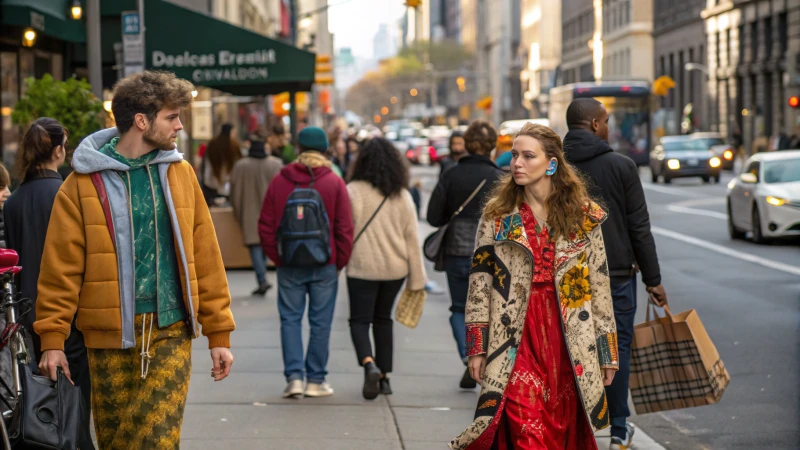
The Influence of Personal Relationships on Fashion Choices
I look at my wardrobe and notice how people around me shape my clothing choices. Each shirt, pair of pants or accessory tells a story about my relationships. These stories shape my identity. A cozy sweater from a loved one or a stylish jacket picked to impress a date really reflect our connections. Our clothes often contain the essence of these bonds.
Personal relationships often have a significant influence on clothing preferences. Romantic partners, family, and friends can sway our fashion choices through direct feedback or subtle cues. For instance, when dating, individuals may dress to impress or align their style with that of their partner, seeking to create a cohesive aesthetic. This phenomenon can lead to a shared wardrobe, where couples begin to mirror each other's styles.
Moreover, social dynamics8 play a crucial role in shaping clothing preferences. In social circles, people might feel pressured to conform to group norms regarding attire. This can lead to a particular style becoming associated with certain friendships or social groups.
Workplace Relationships and Clothing
In professional settings, attire can greatly impact perceptions and relationships. Dressing appropriately for the workplace is essential, as it reflects professionalism and respect for the organizational culture. Employees may adjust their clothing based on their colleagues' style or the expectations set by management.
| Relationship Type | Influence on Clothing Choices |
|---|---|
| Romantic Partner | Increased effort in style, mirroring |
| Friends | Peer pressure to conform to group norms |
| Colleagues | Adapting attire to fit workplace culture |
Those who work in creative industries may have more freedom to express their individuality through fashion, while those in more conservative fields might opt for traditional business attire. This dynamic illustrates how workplace relationships can dictate not just personal choice but also identity.
Psychological Aspects of Clothing and Identity
The psychological aspects of clothing choices cannot be overlooked. How individuals perceive themselves and how they wish to be perceived by others can influence what they wear. For example, someone in a nurturing relationship might gravitate towards softer, more comfortable fabrics as a reflection of their emotional state. Conversely, individuals seeking to project confidence might choose bold colors or structured silhouettes.
Understanding the psychology behind clothing choices can provide insights into personal relationships. For instance, a study indicated that individuals tend to wear more vibrant colors when they are happy or in love, while darker tones may be chosen during periods of stress or uncertainty.
Gender Expression and Relationships
In modern society, gender expression plays a vital role in clothing preferences. Relationships can encourage individuals to explore their identity through fashion. For example, a man might feel empowered to wear traditionally feminine clothing due to the influence of a supportive partner who encourages self-expression.
This exploration often leads to greater acceptance of diverse fashion choices and can foster deeper connections between individuals as they share their journeys of self-discovery through clothing.
Romantic partners influence each other's clothing choices.True
Couples often mirror styles and dress to impress, reflecting their relationship dynamics.
Workplace attire does not affect professional relationships.False
In professional settings, appropriate clothing is crucial for perceptions and workplace dynamics.
Conclusion
Men may choose to wear women's panties on vacation for comfort, fit, and personal expression, reflecting deeper themes of identity and societal norms.
Explore this link to gain deeper insights into how psychological theories impact consumer behavior in fashion. ↩
Learn how emotions affect clothing choices through this informative article. ↩
Discover the cultural implications on fashion through this research resource. ↩
Gain deeper insights into how societal norms shape gender expression across cultures. ↩
Understand how media influences societal expectations around gender roles. ↩
Explore ways to empower individuals in expressing their gender identity authentically. ↩
Learn about the challenges faced by those who deviate from traditional gender norms. ↩
Explore how personal relationships influence clothing styles and choices, enhancing your understanding of social dynamics. ↩

